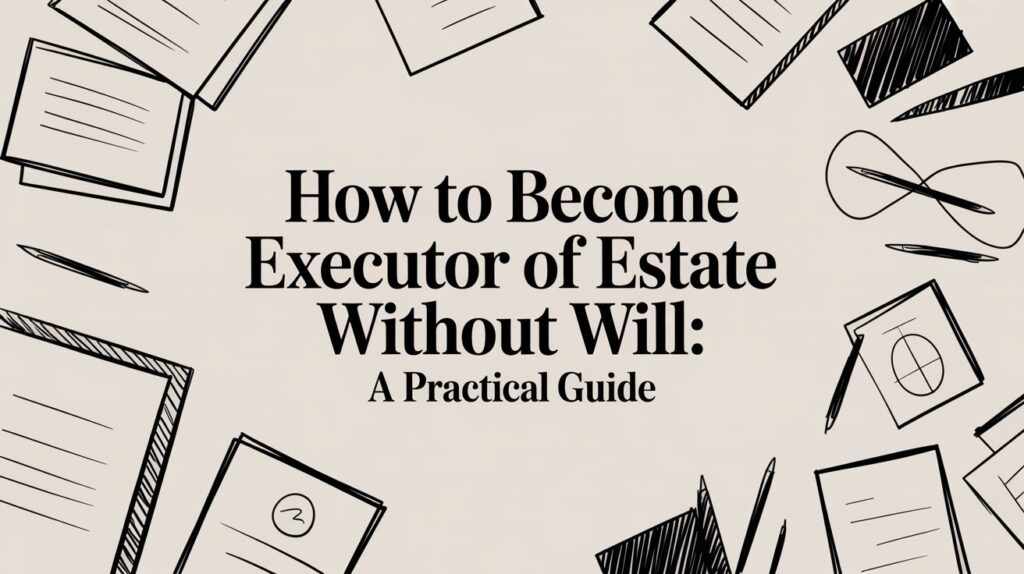Few legal battles in Texas are as emotionally charged or deeply rooted as inheritance disputes over land. When family land passes from one generation to another, it often carries not only financial value but also legacy, history, and a deep sense of identity. That’s why when disagreements arise — over who owns what, how property should be divided, or who has the right to sell — the conflict can become personal, bitter, and prolonged.
In Texas, rural property disputes are widespread. Land often passes informally, through wills written decades ago or verbal promises made around kitchen tables. Some heirs live on the property; others have moved to cities and see it as an asset to sell. Add unclear titles, overlapping claims, and family mistrust, and you have a recipe for long, expensive probate battles.
This article examines why rural inheritance disputes are so frequent in Texas, how land ownership laws contribute to the chaos, and what families can do to prevent these conflicts before they begin.
Why Rural Land Causes the Most Family Conflicts

Texas land has always carried symbolic weight. It represents independence, family roots, and, often, generational hard work. Many rural families have owned their land for over a century, long before modern estate planning or formal deeds were common. That history, while meaningful, can create problems when ownership passes to multiple heirs.
One of the main reasons rural property disputes erupt is that the land itself is not easily divisible. Unlike money in a bank account, you can’t simply split a ranch or farmland evenly among six siblings. When one heir wants to sell, another wants to farm, and another wants to hold onto it for sentimental reasons, the disagreement quickly escalates into legal conflict.
Moreover, rural land values in Texas have increased significantly over the past two decades, particularly in areas near developing communities. A patch of farmland that once seemed insignificant may now be worth millions. This sudden wealth magnifies existing tensions and turns what might have been a quiet family disagreement into a full-blown lawsuit.
The Role of Heirship and Informal Transfers
Many rural inheritance disputes stem from what Texas law calls “heir property.” This occurs when land is passed down without a will or a formal probate process. Instead of being transferred to specific individuals through clear documentation, ownership automatically spreads to all legal heirs of the deceased.
Over generations, this creates tangled ownership webs — sometimes with dozens of people holding fractional interests in the same property. Some heirs may not even know they own a share; others may live on the land and pay taxes, assuming full ownership.
Without a clear title, the land becomes nearly impossible to sell, lease, or use as collateral. Any one heir can also file a partition action — asking the court to divide or sell the property. This often leads to heartbreak, especially when the property holds family homes or farmland that’s been in the family for decades.
Texas law allows courts to order a “partition in kind” (physically dividing the property) or a “partition by sale” (selling the property and dividing proceeds). But with irregular parcels of rural land, partition in kind is rarely feasible. More often, courts order the property sold, even if some heirs desperately want to keep it.
The Problem of Outdated or Missing Wills
In rural Texas, many landowners never update their wills — or never write one at all. Some rely on informal promises or handwritten notes that don’t meet legal requirements. Others assume that family members will “work it out” after they’re gone.
Unfortunately, Texas probate courts deal with the consequences of that assumption every day. When there’s no valid will, the property passes under the state’s intestate succession laws. This means the court decides who inherits, based strictly on family relationships — not the deceased’s wishes.

This can create major problems when land has sentimental or economic value. A spouse from a second marriage might inherit part of the ranch along with children from a prior marriage, forcing people with different loyalties and financial goals into joint ownership. Without cooperation, the property often ends up in forced sale or litigation.
Even when a will exists, it may be vague or outdated. A will written 40 years ago might reference property that has since changed in size, value, or use. It might name executors who have died or heirs who can’t be located. These gaps leave courts to interpret intentions, often leading to costly disputes.
Disputes Between On-Site Heirs and Distant Relatives
A recurring pattern in Texas land inheritance cases involves heirs who live on the property and those who live far away. The on-site heirs often believe they have more right to the land because they’ve maintained it, paid taxes, or made improvements. Distant heirs, meanwhile, may see the land purely as an investment or inheritance they’re entitled to monetize.
Texas courts don’t automatically favor one group over the other — legal ownership depends on title, not proximity or effort. However, courts can sometimes credit the contributions of those who paid taxes or made significant improvements by adjusting how sale proceeds are distributed. Still, those adjustments rarely satisfy everyone.
In many families, these disputes go beyond law — they touch pride, resentment, and long-standing interpersonal fractures. Mediation can help, but once a case reaches probate court, relationships are often damaged beyond repair.
When Property Titles Don’t Match Reality
A surprising number of rural Texas land disputes arise because property records don’t align with how the land has actually been used or inherited. It’s not uncommon for a piece of land to still be recorded in the name of a grandparent who died fifty years ago, with no probate ever completed.
This creates problems when heirs try to sell or refinance the property. Title companies won’t issue clear ownership certificates until probate is resolved or an affidavit of heirship is filed and accepted. But even affidavits can be contested if family members disagree about who qualifies as an heir.
Boundary disputes also complicate things. Rural tracts often have poorly defined borders or outdated surveys. If fences or roads were placed incorrectly decades ago, new surveys can reveal overlapping claims — igniting fresh rounds of conflict.
The Emotional Weight of “Family Land”
In Texas, rural property isn’t just dirt and fences — it’s a legacy. Many families see their land as a living symbol of their heritage, passed from ancestors who worked it by hand. Selling that land feels like breaking a sacred promise, even when it makes financial sense.
That emotional attachment often drives heirs to reject fair offers or refuse settlements. It’s not unusual for a family to spend more in legal fees fighting over the land than the property is worth. And because these disputes pit relatives against each other, they can fracture families for generations.
Lawyers and judges who handle these cases often describe them as the hardest to resolve — not because the law is unclear, but because emotion overrides logic. No one wants to be the heir who “lost the family land,” even if holding onto it is no longer practical.
How Probate Law Intersects With Land Disputes
Under Texas probate law, real property passes directly to heirs upon death, subject to the estate’s debts. That means land can become jointly owned before probate even finishes. If heirs don’t cooperate, it stalls the entire process.
Probate courts can intervene to appoint administrators, approve sales, or clarify heirship. But because rural property disputes often span generations, they can involve multiple estates — grandparents, parents, and siblings — all overlapping. Resolving these layers requires tracing old deeds, wills, and probate filings, which can take years.
Heirs who believe property is being mismanaged can file a motion for an accounting or even seek the removal of an executor. However, this further prolongs litigation, draining resources from the estate.
Preventing Rural Inheritance Disputes
While every case is different, many of these conflicts are preventable with proper estate planning and clear communication. Rural landowners can dramatically reduce the risk of future disputes by updating their wills regularly and keeping property titles current.

Some families choose to transfer land into a trust, allowing for centralized management and clear rules for use, sale, or income distribution. Others use transfer-on-death deeds, which automatically pass property to designated heirs without probate.
It’s also crucial for families to discuss expectations before a death occurs. When everyone understands who will inherit the land and why, the risk of future legal battles diminishes significantly.
Lessons From the Courts
Texas case law is filled with examples of rural families torn apart by land disputes. One common thread is that these fights rarely end with clear “winners.” Even heirs who prevail in court often find that the cost — financially and emotionally — outweighs the outcome.
Judges tend to favor practical resolutions, such as ordering sales or equalizing distributions, rather than forcing co-ownership among hostile family members. But by that point, relationships are often beyond repair.
The courts also emphasize documentation. Heirs who can show clear, legal proof of ownership — through recorded deeds, probate orders, or wills — stand a far better chance of protecting their interests. Verbal promises or “everyone knew it was mine” arguments rarely hold up in court.
Final Thoughts
Inheritance disputes over land in Texas reveal how deeply intertwined law, legacy, and emotion can be. Rural property carries more than monetary worth — it represents generations of labor, memory, and belonging. But without careful planning, that same land can become the source of family division and financial loss.
In a state where land ownership defines identity, Texans must treat estate planning with the same seriousness as farming or ranching itself. Updating wills, recording deeds properly, and discussing inheritance openly can spare families years of grief and legal conflict. Rural land should be a source of pride, not pain. And while Texas law offers tools to resolve disputes, the real solution lies in foresight — ensuring that every acre passes to the next generation with clarity, respect, and peace.








